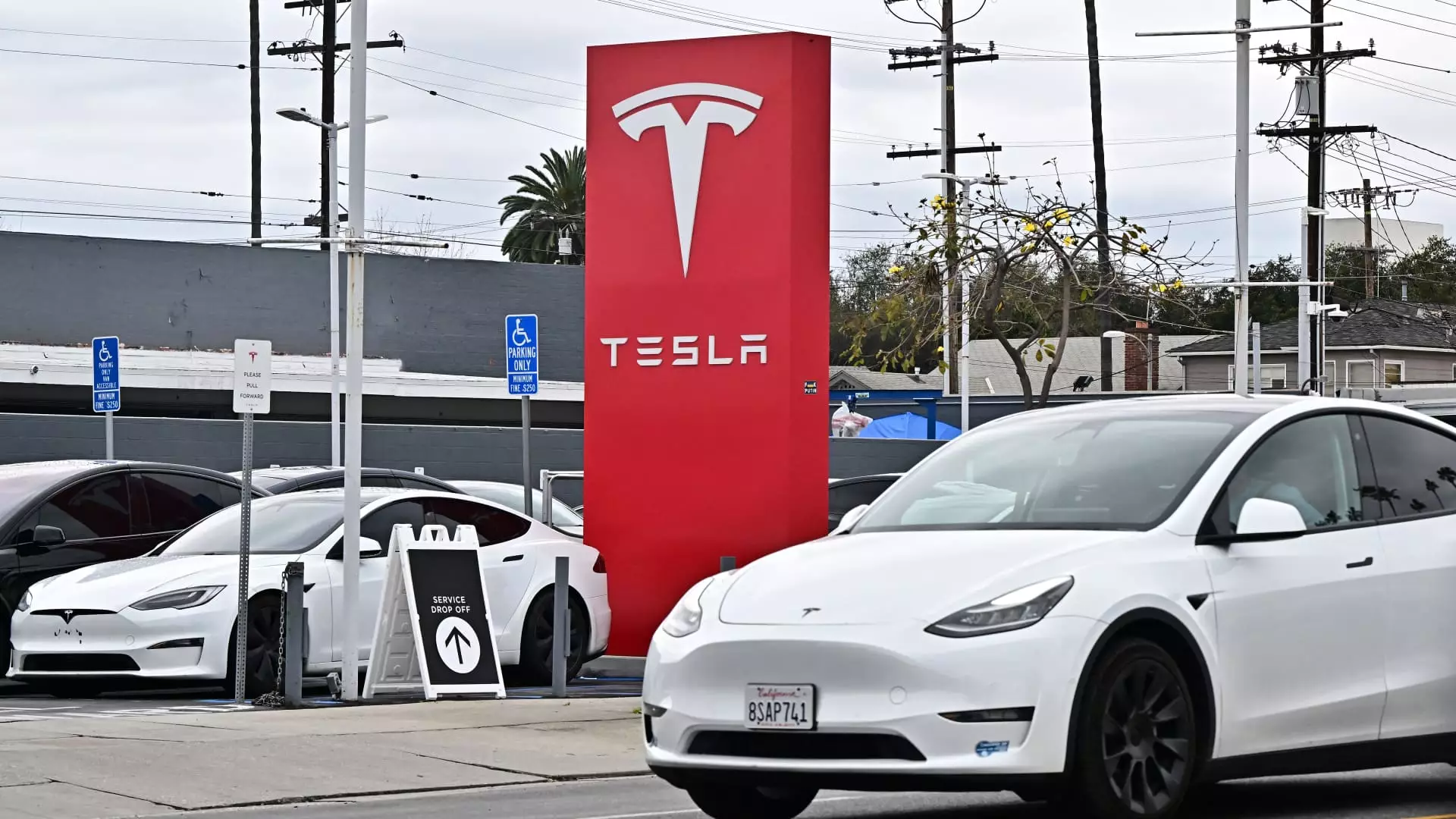In a dramatic twist of fate, the market dynamics of electric vehicles (EVs) are shifting beneath Tesla’s feet as Elon Musk enters his second month at the helm of the Department of Government Efficiency (DOGE). Recent insights from Edmunds reveal a startling trend: record levels of Tesla owners opting to trade in their vehicles for alternatives. This not only raises eyebrows but also signals deeper unrest within the once-loyal Tesla community. The soaring trade-in rates are juxtaposed against an equally alarming backdrop of declining brand strength as Tesla experiences a swift loss of both loyalty and interest among consumers.
The Price of Political Ambition
Elon Musk’s ascent into a political position alongside Donald Trump was never going to be without fallout. His dual role as CEO and government official presents a dangerous cocktail of ambition and compromise. Musk’s previous investments, reportedly around $290 million on Trump’s campaign efforts, seem to have come with higher stakes than just political currency—now, they are endangering Tesla’s identity itself. Under his leadership, the brand is witnessing unprecedented internal strife as gross misjudgments and public backlash spiral out of control. Not only has the stock price plunged by 42% this year, but subpar management decisions have begun alienating Tesla’s core fanbase at an alarming rate.
Emergence of Competitors and Market Erosion
Tesla is no longer the uncontested leader of the EV realm; as reported by S&P Global Mobility, the company’s sales have plummeted by 11% year-over-year in the U.S. What’s particularly troubling is that competitors—Ford, Chevrolet, and Volkswagen—are not merely catching up but gaining ground in market share. The reality that Tesla’s brand value decreased by $15 billion, or 26%, over the last year raises critical questions about its future viability. As investors and consumers grow increasingly wary, it’s clear that Musk’s missteps are being exploited by rivals poised to taste Tesla’s former domination.
Consumer Discontent Fosters Opportunity
Jessica Caldwell of Edmunds notes a significant shift in consumer sentiment that legacy automakers and new EV startups are keen to exploit. The decline in brand loyalty and interest surrounding Tesla has created openings for competitors to capture the attention of disenchanted Tesla owners and potential EV buyers. This phenomenon raises the uncomfortable possibility that Musk’s heavy-handed tactics and erratic public persona could be driving consumers straight into the arms of rival brands offering “less controversy” and “competitive pricing.” The discontent runs so deep that it threatens to redefine the market landscape itself.
The Impact of Musk’s Public Image
More than any other automaker, Tesla’s identity is inseparable from Musk himself. Yet, with only 2% of car shoppers unfamiliar with him as of August 2024, not even the most ardent supporters are immune to the fallout of his controversial statements and governance decisions. As new model shopping for Tesla hits its lowest point since October 2022, the implications of this dwindling interest cannot be overstated. The idea that consumers are increasingly distancing themselves from Tesla speaks volumes about the potential ramifications of having a polarizing figure at the forefront of the brand.
Challenges Yet to Unfold
As if this weren’t enough, the ongoing challenges for Tesla continue to mount. Vandalism and arson targeting Tesla facilities represent not just a criminal nuisance but also a significant public relations nightmare. The dilapidation of the once-golden image of Tesla is compounded by the incessant criticism directed at the company. It’s as if the protests are merely a symptom of a larger cultural shift against Musk and the Tesla brand. The mainstream perception of Tesla is now marred with connotations of disarray and instability, further encumbering its prospects for recovery and growth.
In this landscape, the stakes have never been higher for both Musk and Tesla, facing internal and external pressures that threaten to erode their legacy. The question now hangs heavy in the air: Can Musk reclaim Tesla’s vibrant future, or is it already too late?

